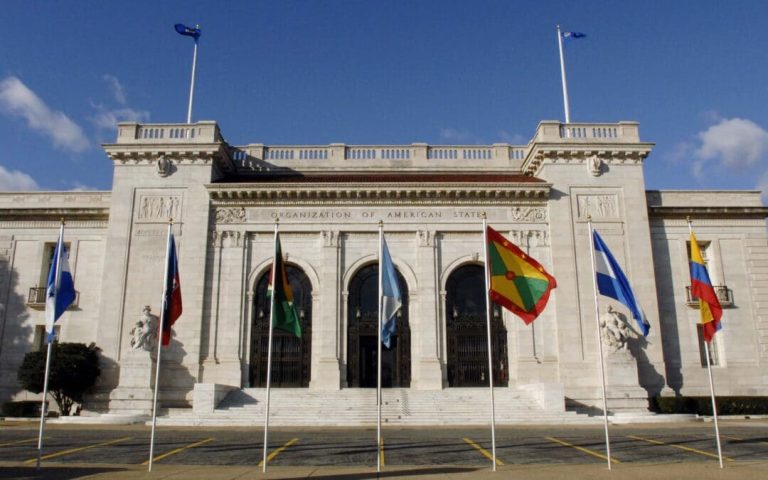30 de noviembre 2021

Children of Exile: The Births “Sowing Hope” in the Camp of Nicaraguan Farmers

PUBLICIDAD 1M
PUBLICIDAD 4D
PUBLICIDAD 5D
The OAS Permanent Council conducts a collective assessment on the Nicaraguan crisis, in compliance with a mandate from the General Assembly

A Permanent Council Resolution obtained 27 votes in favor
On Monday, November 29th, the Permanent Council of the Organization of American States (OAS) carried out a “collective assessment” on the Nicaraguan crisis. No decision was taken at the session, but most representatives of the member states suggested “undertaking” more diplomatic efforts in Nicaragua.
Diplomatic efforts could include the creation of a high-level commission to visit the country and promote the “normalization of democratic institutions,” as established in article 20 of the Inter-American Democratic Charter.
The collective assessment was in compliance with the resolution “The Situation in Nicaragua” adopted last November 12, at the 51st General Assembly of the OAS Foreign Ministers, held virtually.
In that same resolution, the OAS declared —with 25 votes in favor, one against, seven abstentions and one absence—, that the Nicaraguan elections of November 7 “were not free, fair, or transparent and do not have democratic legitimacy.”
In those elections, Ortega re-elected himself for a fourth consecutive term, second with his wife Rosario Murillo as Vice President. However, on this occasion, the Sandinista leader presented himself without political competition, after imprisoning the main opposition candidates, and without democratic guarantees.
This was the first session of the Permanent Council to discuss the Nicaraguan crisis, after the Ortega and Murillo regime announced on November 19th their withdrawal from the regional body, for alleged and “constant interventionist attitudes” from the OAS.
The withdrawal of Nicaragua will become official and effective in November 2023, since the process lasts two years, therefore the possibility exists that Nicaragua could be suspended before that period. Besides, during this period, the Government must comply with all its political and financial obligations with the regional body.
In its 70-years history, the OAS has only suspended the states of Cuba and Honduras, the latter was later reinstated.
The last collective OAS assessment was on Venezuela, in March 2017. A month later, Venezuelan President Nicolas Maduro denounced the OAS Charter to remove Venezuela. However, the process was not completed because Maduro’s 2018 reelection was disregarded by the regional organization, and instead they recognized as interim president the opponent, Juan Guaido, at that time President of the Parliament, who appointed a new representative to the OAS.
This article was originally published in Spanish in Confidencial and translated by Havana Times
Archivado como:
PUBLICIDAD 3M
Confidencial es un diario digital nicaragüense, de formato multimedia, fundado por Carlos F. Chamorro en junio de 1996. Inició como un semanario impreso y hoy es un medio de referencia regional con información, análisis, entrevistas, perfiles, reportajes e investigaciones sobre Nicaragua, informando desde el exilio por la persecución política de la dictadura de Daniel Ortega y Rosario Murillo.
PUBLICIDAD 3D